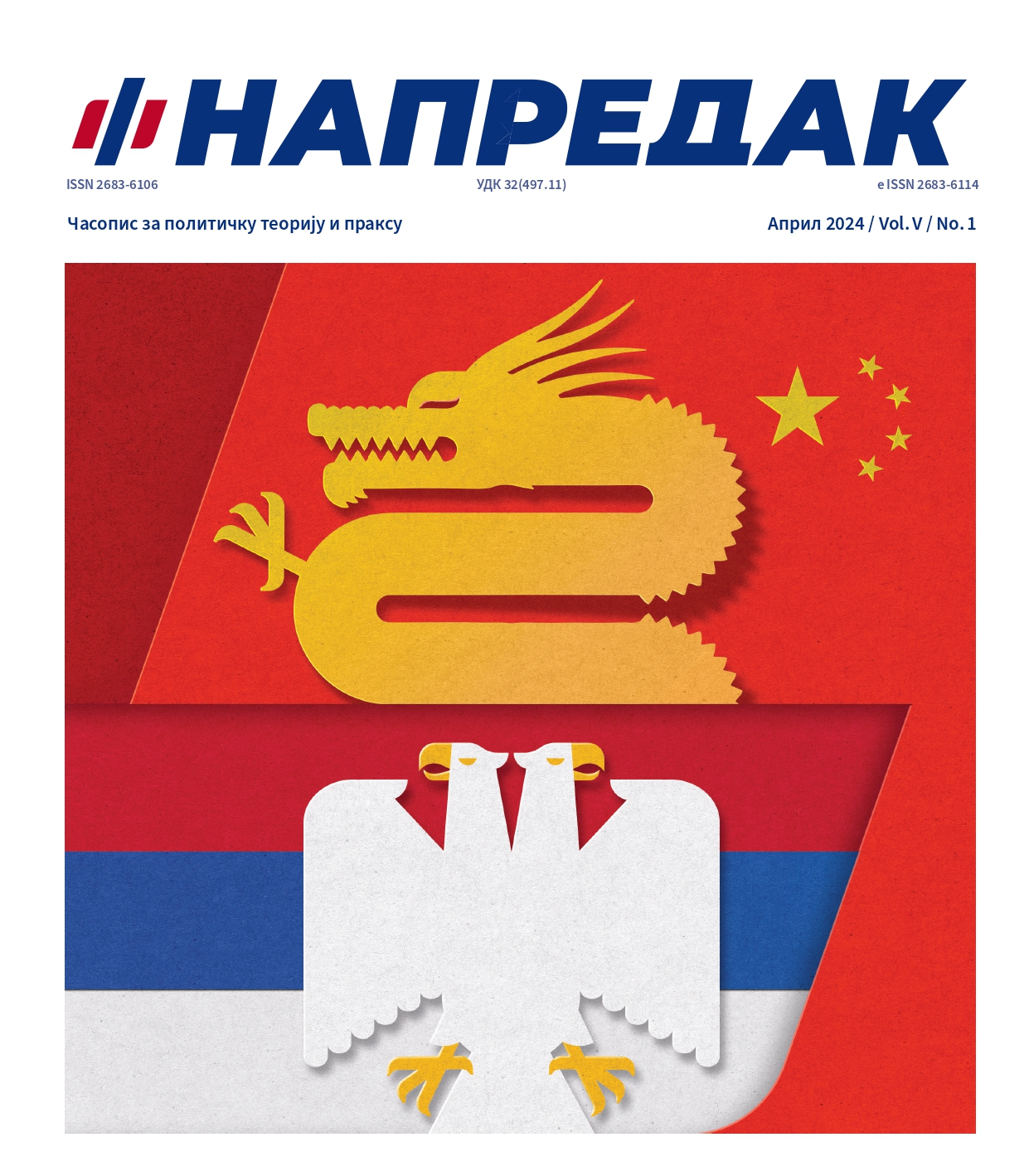Through dialogue of cultures and convergence of civilizations – modern China on the partnership road towards development, peace and future of humanity
(Sociological marginalia about the Chinese strategy “Belt and Road”)
Abstract
The paper elaborates on the following Chinese strategy: the dialogue of cultures and convergence of civilizations are a road of achieving partnership for sustainable development and peace in the world. The author first gives an overview of the history of Chinese culture and civilization: its depth, breadth and giant accomplishments. Then he discusses modern China from the period after Mao’s death and its leaders/reformers, in particular Deng Xiaoping and Xi Jinping, as the founders of the new development strategy in China’s internal and foreign politics. In that context, the focus of the author’s analysis is on China’s modernization and development strategy, relying on the rapid and high development of education, science and advanced technologies of the third and fourth developmental-civilizational waves, as well as liberalization of economy and democratization of social and political relations; the “Belt and Road” strategy – i.e., China’s great opening up and cooperating with the world through partnership for the sake of universal wellbeing of humanity, globalization with a human face, multipolar order and peace in the world.
References
Aron, R. (2001). Peace and War – A Theory of International Relations. Sremski Karlovci – Novi Sad: Knjižarnica Zorana Stojanovića. [In Serbian]
Berger, P. (2002). Many Globalizations: Cultural Diversity in the Contemporary World. Oxford (USA): Oxford University Press.
Brzeziński, Z. (2012). Strategic Vision: America and the Crisis of Global Power. New York: Basic Books.
Brzeziński, Z. (1999). The Grand Chessboard. Podgorica: CID. [In Serbian]
Crnjanski, M. (1923). An Anthology of Chinese Lyrics. Beograd: Knjižarnica “Napredak”. [In Serbian]
Durant, W. (2006). He Greatest Minds and Ideas of All Time. Beograd: Narodna knjiga. [In Serbian]
Galtung, J. (2009). Peace By Peaceful Means: Peace and Conflict, Development and Civilization. Beograd: Službeni glasnik. [In Serbian]
Goleman, D. (2016). A Force for Good. Beograd: Geopoetika. [In Serbian]
Jinping, X. (2023). On Building a Community with a Shared Future for Humanity. Beograd: Albatros plus. [In Serbian]
Lampton, D. M. (2015). Following the Leader: Ruling China, from Deng Xiaoping to Xi Jinping. Beograd: CIRSD. [In Serbian]
Lang, Ye and Liangzhi, Zhu (2022). Insights into Chinese Culture. Novi Sad: Akademska knjiga. [In Serbian]
Marek, F. (1965). Philosophy of World Revolution. Zagreb: Stvarnost. [In Croatian]
Mitrović, D. (2 April 2023). “China’s politics and economic rise, the driving force of the global economy growth”. Politika, pp. 10–11. [In Serbian]
Mitrović, Lj. R. (2022). Sociological Marginalia on Contemporary Topics II. Novi Sad: Prometej. [In Serbian]
Sklair, L. (2002). Globalization – capitalism & its alternatives. New York: Oxford university press.
Toynbee, A., Ikeda, D. (2005). Choose Life – Dialogue. Beograd: Dereta. [In Serbian]
Zakaria, F. (2009). The Post-American World. Beograd: Heliks. [In Serbian]

